 Vampire Weekend's Surprising Jewish Stories
Vampire Weekend's Surprising Jewish Stories
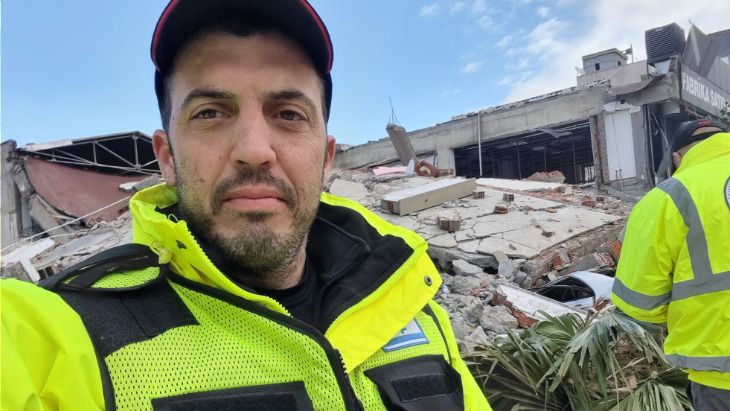

6 min read
Dvir Dimri pulled people from the rubble and treated 3,000 patients last week.
When a 7.8 magnitude earthquake struck southeastern Turkey on February 6, 2023, Dvir Dimri was at work near Jerusalem. A high-energy 39-year-old who's worked as a Jewish studies teacher in Chicago and is the former CEO of Karta Investments, an Israeli real estate investment company, Dimri is also a soldier, a trained medic, and rescue worker who's worked helping people in the aftermath of disasters around the world.
In 2021, he was part of a delegation of Israeli rescuers that SSF Rescuers Without Borders, a French-based international rescue and first aid organization, dispatched to Surfside, Florida, in the aftermath of the Champlain Towers disaster there.
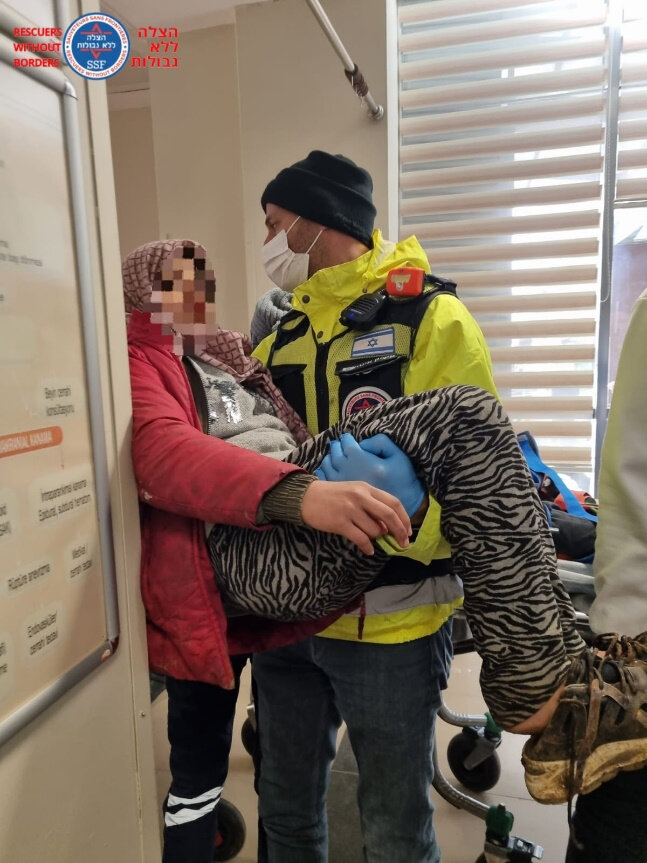
Hours after the earthquake struck, his colleagues at SSF had an urgent message: drop everything and report for duty. SSF was mobilizing its highly-trained Israeli contingent to travel to Turkey immediately to help search for survivors and provide first aid to the injured. He barely had time to say goodbye to his wife and children. "By 5PM we were already at the airport with medicines and our rescue equipment," Dimri recalled in an exclusive Aish.com interview. The group - made up of both Jewish and Arab Israelis - was headed to the heart of the earthquake-devastated area in Turkey’s south, but were unable to fly into the hardest-hit areas because of extensive damage. “All the airports were closed.”
Instead, Dimri and his colleagues flew to Istanbul, where they were greeted by Turkish officials. Local police directed the group to travel to the city of Adiyaman in southeastern Turkey. A mostly Kurdish city of a little over a quarter of a million residents, Adiyaman was in the heart of the earthquake’s deadly reach, and heavily damaged. Turkish police lent the Israeli group vans, and a delegation of Turkish soldiers accompanied them to provide protection and local resources.
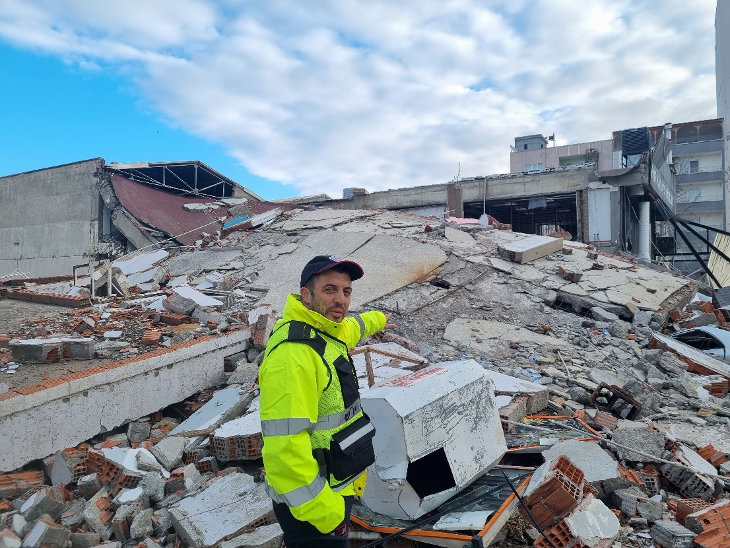
When they arrived in Adiyaman, a scene of utter devastation met them. “In the town, you see street after street where there are no more buildings,” Dimri recalled. “Even the buildings that still exist all have cracks; it’s obvious that no one can live there.” Fortunately, Adiyaman’s large new hospital was one of the few undamaged buildings in the area. Very few other structures were habitable.
Even with what I went through in the army, and treating victims in all the terror attacks in Israel, I never experienced anything like this.
Dimri looked around to establish a home base of operations and found an abandoned, small wooden hut that was still standing. This became the medics’ base of operations. They set up tents in Adiyaman’s bitterly cold winter weather for the rescue workers to sleep in.
“We started to dig,” Dimri explains, using the specialist equipment they brought with them from Israel. “Right away we found three people” who were still alive.
Within hours, local officials asked the Israeli group - which contained doctors and other medical professionals - to move their operations to the local hospital, which was overwhelmed. The scene was one of terrible emergency and suffering. “Hundreds of people were injured,” Dimri describes. “Every minute, more people came in - these were people with serious injuries.” Dimri worked setting up IVs and performing first aid.
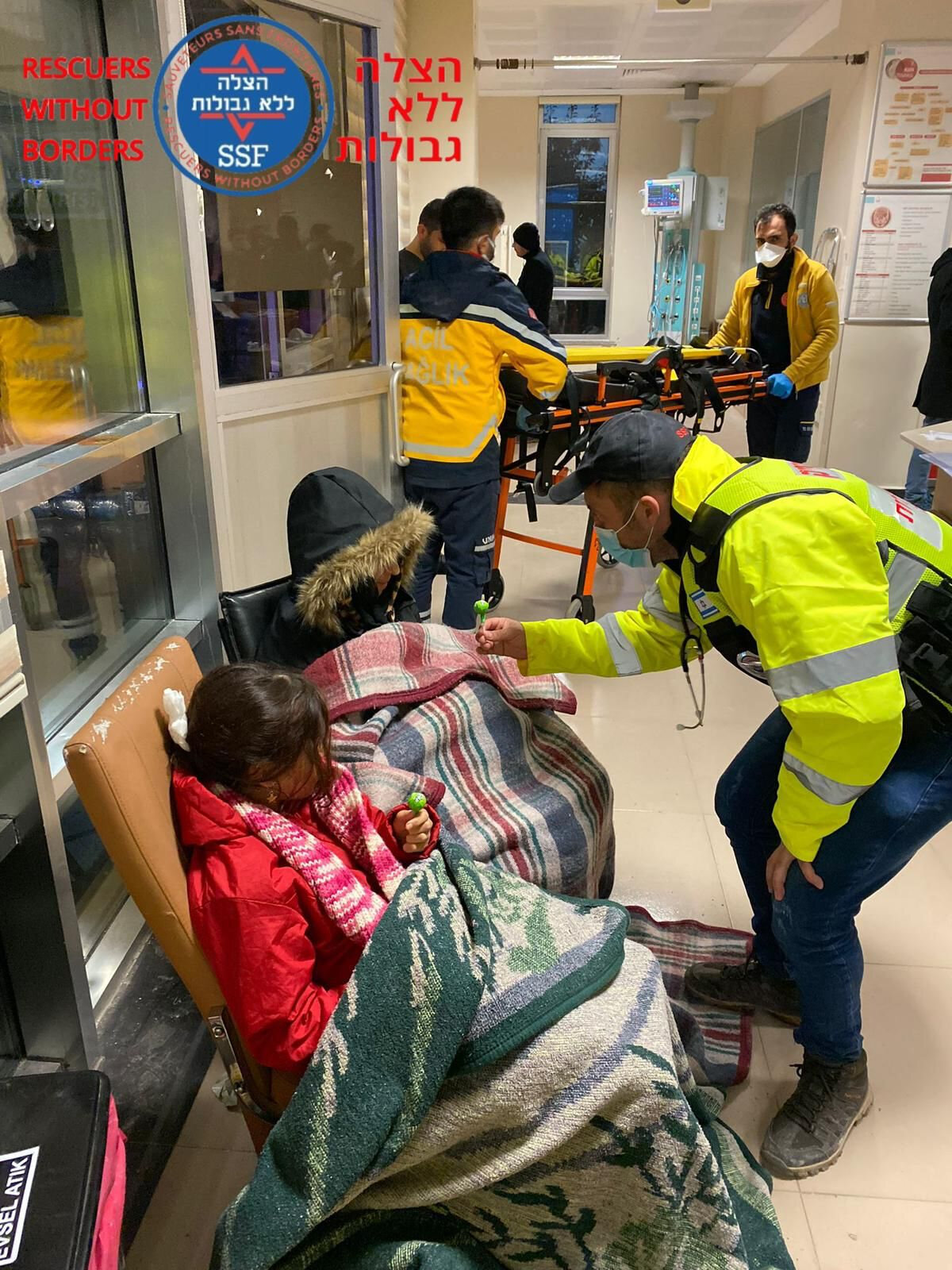
“A lot of people actually died in my arms,” Dimri remembers. “When I brought them to the morgue, there were literally thousands of deceased people there.”
Many of the people who were rescued had catastrophic injuries. “Some came in after 70 hours, 80 hours, buried under rubble. Even one week after the earthquake a six-year-old kid was brought to our hospital,” alive but with terrible medical problems.
Dimri saw some patients overwhelmed by grief. He remembers one patient who regained consciousness only to be told that his entire family was dead. The patient began to scream and tried to fight with the doctors who’d told him the terrible news - then he fainted. “People were waiting 24 hours to hear about their loved ones and at the end of the day, too often, we told them we found their body. Then they just collapsed. All their hope was crushed in a moment.”
The week went by in a daze. Dimri and his colleagues would sleep at most for a couple of hours, then return to the hospital. “Even with what I went through in the army, and treating victims in all the terror attacks in Israel, I never experienced anything like this,” he explains.
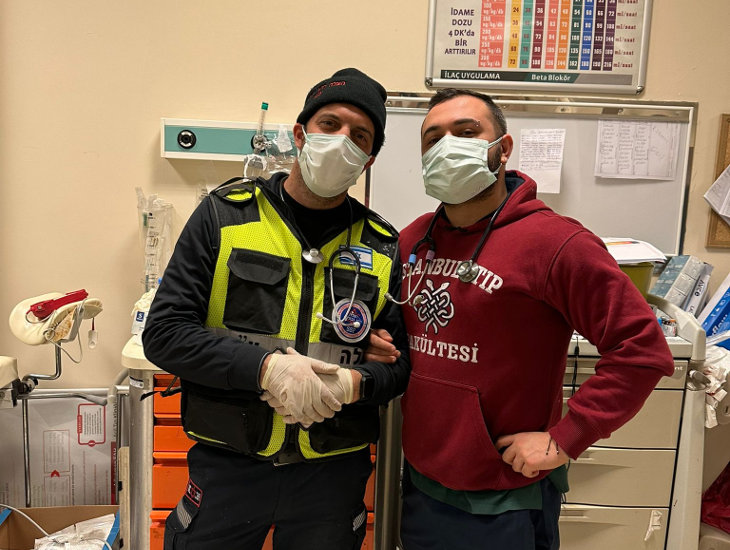
As he and his colleagues worked, they proudly wore the Israeli flag sewn on their rescue uniforms. Their Turkish patients and colleagues were incredibly grateful. Patients hugged and thanked them. One pregnant woman Dimri treated told him she had no more home and no place to go. Horrified, Dimri raised money from his Israeli colleagues to buy her a tent. She delivered a son soon after, and named her baby “Rescue” in Turkish, in honor of the Israeli delegation.
I love the country of Israel and the Israelis more because of you. The Turkish nation will never forget this noble act you showed.
After the week concluded, a Turkish doctor who’d worked closely with the Israeli team wrote to Dimri, in a message he shared with Aish.com:
“I want to thank you on behalf of the Turkish nation. You didn’t leave us alone. From now on I will remember you when Israel is mentioned. I love the country of Israel and the Israelis more because of you. The Turkish nation will never forget this noble act you showed. You have a very big heart, my brother.”
Dimri estimates he treated 3,000 seriously injured patients. He’s proud to have represented Israel. Out of all the countries in the world, he says Israel sent the second largest number of rescue workers to Turkey.
“It’s very special to be part of this Kiddush Hashem,” he says, using the Hebrew term for something that embodies noble Jewish behavior. There are still Israeli rescue workers on the ground in Turkey, though some began to evacuate on February 12 due to threats against them. They leave behind a nation still reeling from the incalculable losses of the earthquake - and one which is profoundly grateful to Israeli and other rescuers who stood with them and aided them in their time of deepest need.
